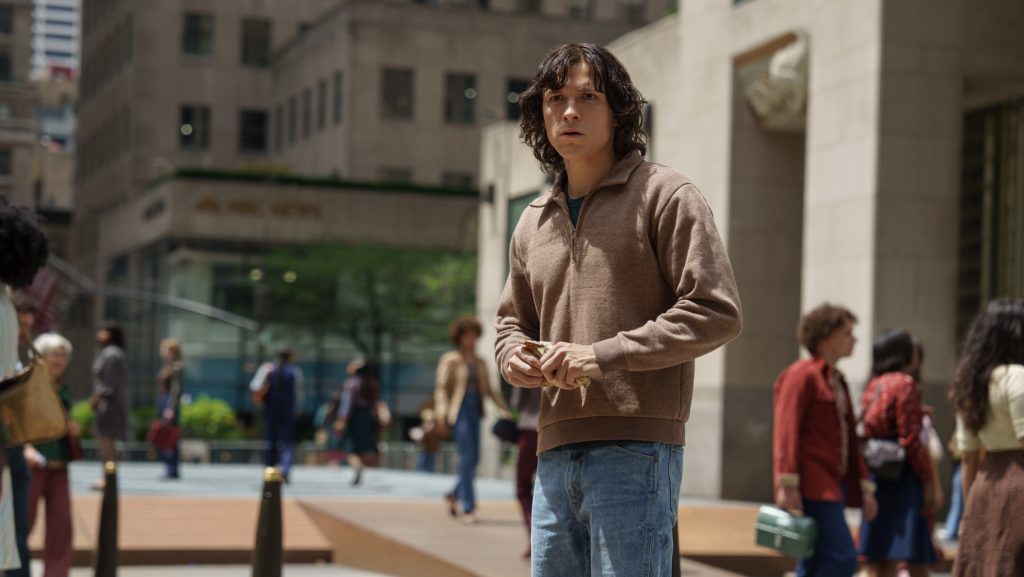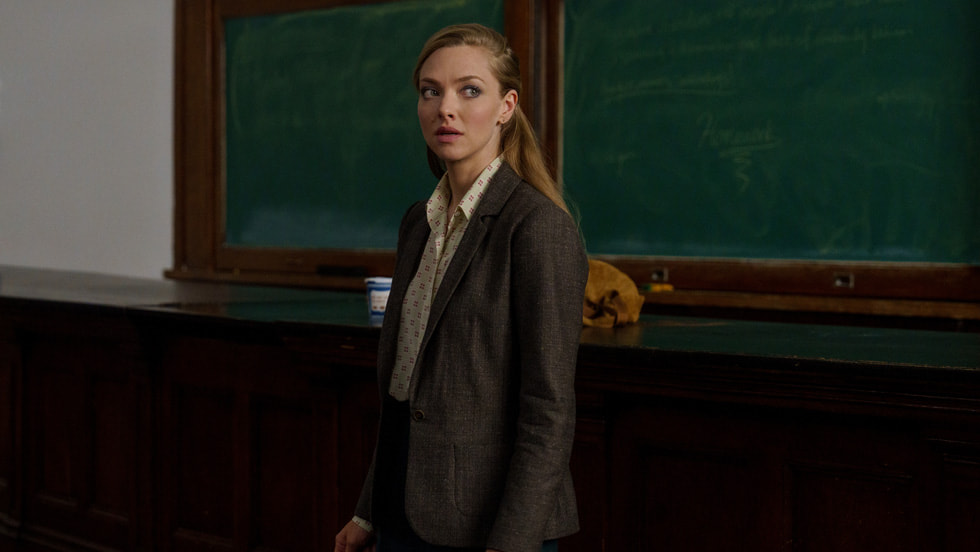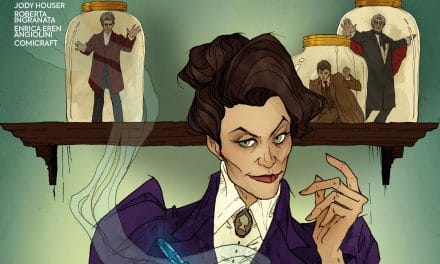Everyone loves a thrilling mystery, right? That’s certainly what Apple TV+ was banking on when they created The Crowded Room. Every moment of this show feels like it’s trying SO hard to either grab your attention or pull on your heartstrings – and somehow, it doesn’t really succeed in doing either.
Here’s the synopsis of The Crowded Room provided by Apple TV+:
In Manhattan in the summer of 1979, a young man is arrested for a shocking crime, and an unlikely investigator must solve the mystery behind it before the true criminal strikes again.
The Crowded Room: A mystery with very little mystery
The Crowded Room plays out as a dramatic crime thriller mystery. Or at least, that’s how it’s structured. It opens with a crime, which triggers an arrest, and then the plot unfolds through interrogation room questioning and flashbacks. The goal is simple: to keep audiences intrigued by unveiling the true nature of the crime and the background of the suspect, Danny (Tom Holland), bit by bit.
The Crowded Room hangs its hat on building mystery and suspense surrounding its narrative. What happened to the other people involved with the crime? What drove Danny to commit it in the first place? Is he a criminal mastermind, or just a guy who got mixed up with the wrong crowd? In other shows, these questions can drive a successful story. But in The Crowded Room, they all fall flat.
The problem here is that The Crowded Room is one of those shows where the “twist” is actually just the premise of the show. And when you understand the “big reveal” in the first episode, it becomes pretty tedious as a viewer to wait six episodes for the show to get there.

Apple TV+ closely guards spoilers for the series, so I’m not allowed to mention the “twist” specifically. Here is what I can tell you: Danny is being questioned by Rya (Amanda Seyfried), who we understand is not a cop. He’s telling a story with obvious holes and inconsistencies, because he doesn’t clearly remember certain things happening. He’s in a show called The CROWDED ROOM, which the series’ opening credits inform you is based on a book called The MINDS of Billy Madigan.
It doesn’t take a genius to figure out what’s going on here. But The Crowded Room insists on acting like it does.
Why did they make this 10 episodes?
The obviousness of the “twist” just feeds into one of the show’s biggest problems: it’s just too damn long. The show uses 10 episodes to do what it could have done in half that. There’s a full episode to reveal the “twist” (which again, if you’re paying attention at all, you probably know from episode 1); a full episode that’s just flashbacks watching everything we’ve already seen over again with new eyes; and not one but two full episodes dedicated to the criminal trial, after we move out of the investigation/interrogation phase.
I don’t think The Crowded Room would have suddenly become amazing just by slicing the episode count. But I do think tightening things up would have helped significantly. If I didn’t have to roll my eyes and say, “Okay, okay, I get it!” quite so many times, watching this one would have been less of a chore for sure. Instead, we get 10 episodes of some of the most overt, winkey-winkey “mystery” setup, an obvious fact played as a dramatic reveal, and then an even more drawn out explanation of said reveal that acts like the audience needs to have their hand held through every moment to possibly grasp what’s going on.

Some final thoughts
The Crowded Room deals with quite a few heavy issues, including mental health and abuse. (Again, spoilers prevent me from getting more specific.) Though the more emotional moments occasionally border on schmaltzy, in general the series does treat its subject matter with the gravitas it deserves. I do appreciate the obvious thought and care that went into bringing this story to the screen. Even when the execution wasn’t 100% there, I can tell the intention was.
In terms of performances, I would give the show’s MVP award to Emmy Rossum, who plays Danny’s mom. A lot of the show’s more emotionally impactful moments end up falling to Rossum, who gives a subtle and nuanced performance that really lends gravitas and emotion to the story.
I don’t know that I was blown away by Holland – at least, not in the way that the subject matter and the specifics of his role set up as a possibility to really wow viewers – but I thought he was good. (Certainly good enough to watch in other roles outside Spider-Man.) I also don’t think Seyfried really had enough to work with somehow, though she gets a few memorable moments in.
There’s an important – possibly even good – story at the heart of The Crowded Room. But it tries too hard to be a mystery-thriller when what it really wants to be is a character drama and examination of mental health. Ultimately, The Crowded Room aims to craft a gripping mystery, but doesn’t trust its audience enough to go anywhere new or interesting.
The first 3 episodes of The Crowded Room premiere on Apple TV+ June 9.

![‘The Crowded Room’ Shoots For Intrigue And Falls Flat [Review]](https://thathashtagshow.com/wp-content/uploads/2023/06/project_20230606_1121477-01-1200x640.png)



![Hello There! Star Wars: Obi-Wan Kenobi Series To Debut In May [Rumor Watch]](https://thathashtagshow.com/wp-content/uploads/2021/11/obi-wan-cover1-1-440x264.jpg)
![Murderville – Procedural Hilarity With A Great Idea [Review]](https://thathashtagshow.com/wp-content/uploads/2022/02/271894630_293038976140905_8820734514752779881_n-440x264.png)